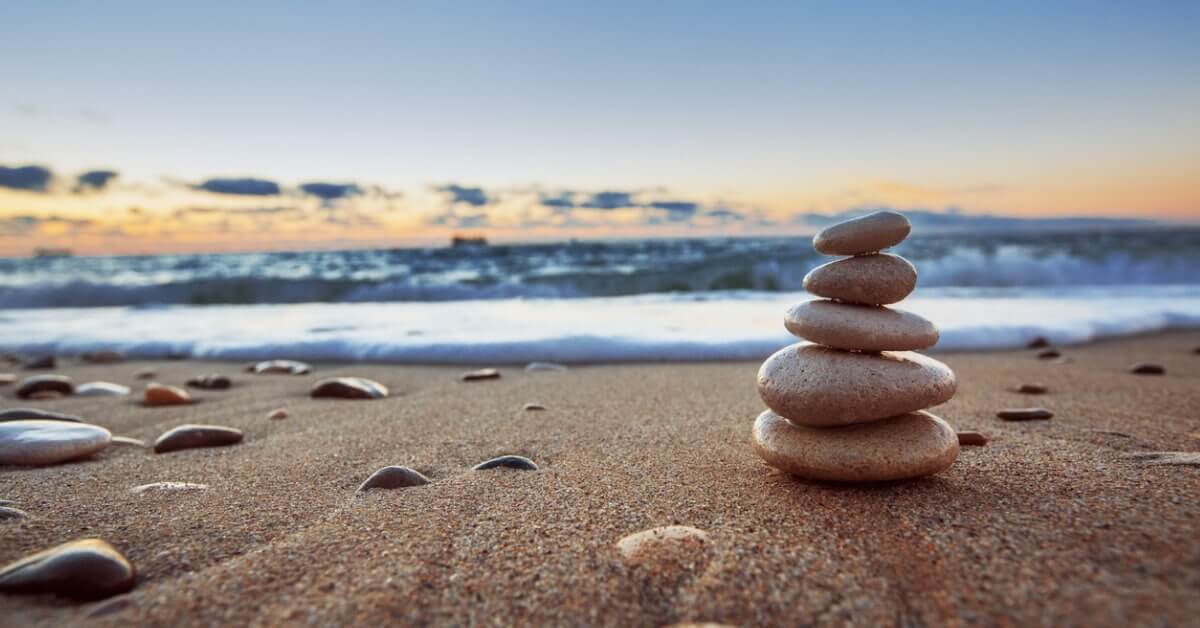A couple months ago, I watched the documentary What the Health?
Halfway through the movie, I texted my husband (who was out of the house) and told him that we’d be vegans by the time he got home. All of us. I was even looking into whether I could make our dog eat a vegan diet.
I went to bed that night before my husband got home, and by the time I woke up, cooler heads had prevailed. I did some more research (there are plenty of rants out there, but this article by Vox is excellent and not angry) and came to the conclusion that feeding my toddler eggs is not exactly the same as feeding her six cigarettes for breakfast.
Thinking about how a movie like that can promote such a visceral response made me spend the next few weeks in deep introspection. What is my philosophy? How do I feel about not just food and what we consume, but exercise, living simply, and how I relate to my husband and my kid?
All this navel gazing had me feeling selfish. I don’t know about you, but I have a hard time thinking about the world around me when I can’t stop thinking about myself!
But I was also thinking about the various isms present that have made me feel uncomfortable in my lifetime.
I’m talking vegetarianism. Veganism. Minimalism.
The Problem with Isms
The way I see it, and I’m not taking case against anyone who identifies as a minimalist, a vegan or a vegetarian, is that as soon as I identify as a something-ist, I’m making a judgement about what you should do, and how you should live.
If eating zero animal products is best, isn’t eating fewer animal products also pretty OK?
If having only the essential items in your house is best, isn’t doing some decluttering a good idea?
If you identify as a something-ist, your answer is no, not for you.
Let’s try it. When you hear someone say the following things, what comes to mind? I’ll give my best guesses as to the knee-jerk responses people have when they hear the following:
On What You’re Eating
- “I eat a lot of fruit and veggies.” Trick statement. Nobody says this! Maybe people say how much they love blueberries or tomatoes, but in general, nobody is saying, “Hey, Guess What? I get my nine servings of veggies every day!”
- “I am a vegetarian.” “Do you eat fish?” Also, “I couldn’t live without bacon.”
- “I am a vegan.” “Where do you get your protein?” Also, “Do you eat honey?”
On Minimalism
- “I don’t have many things.” “Do you need something?”
- “I am a minimalist.” “Ooooh, I bet your house is cleaner than mine. And has many expensive white things. Also I bet you don’t have kids. At least not the kind that like to take things and break them.”
On Drinking Alcohol
- “I only drink alcohol occasionally.” “Oh, cool. I bet you feel pretty good most mornings.”
- “I don’t drink alcohol ever.” “Why?”
The difference? For me, it comes down to guilt.
Removing Guilt
We humans are hardwired to feel guilty about things, and for me, that feeling has gone into overdrive since having a child. Every third internet search I do is something along the lines of, “if I do X, am I ruining my child’s life?” and, because it’s the internet, the answer is often yes.
So, I could become a vegan, but then if I went to a party where something crazy delicious is out (cheese and crackers, for example), then I would either stoically avoid said deliciousness or (more likely) eat it, and then feel horribly guilty about going back on my promise.
Same goes for minimalism. I have fewer things in my closet/medicine cabinet/bookshelves/spare room than most people, but I don’t have so little in my house that I feel like I’m part of the minimalist crowd. Plus, as my friend Cait has so eloquently mentioned previously, my stuff’s not all white. My house doesn’t look like the pages of a Crate and Barrel catalog. When I recently bought two shirts, I didn’t feel guilty about the purchase. I’m certain that I would have felt simply awful if I thought I was violating the ism that I felt like I was a part of. The minimalism police in my head would have said, “you already have shirts. Why do you need two more?”
I wouldn’t call myself an anxious person, but I would call myself a rule follower, and if I broke any rules (even those only enforced by the voices in my head), I would produce enough anxiety from beating myself up that I’d have a hard time falling asleep.
It’s my belief that if you call yourself a something-ist, you’re responsible for representing that belief, and frankly, I’m not cut out for that responsibility.
I like the continuum idea much better.
More vegetables. More fruit. Fewer things.
For me, that means making mindful decisions. Making healthy choices. Staying on my own mat, so to speak. I get to avoid having to talk about where I get my protein or the optimal number of yoga pants in a minimalist wardrobe.
I applaud people who do take a stance on these things, but I know myself, and I know that I need to take a different approach and live according to my definition of healthy and balanced, instead of finding a bunch of different ways to do Wrong Things.
It’s taken me a long time to get here, but I like where I am.

